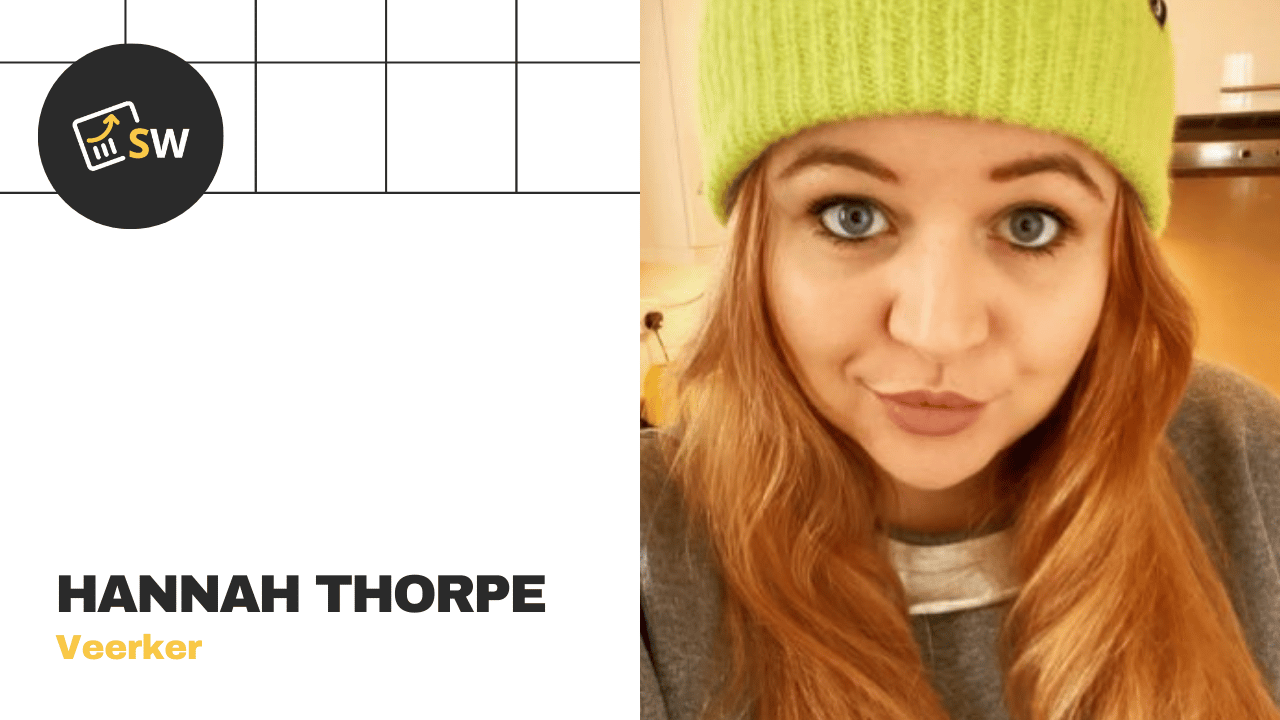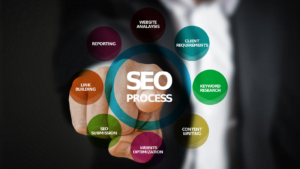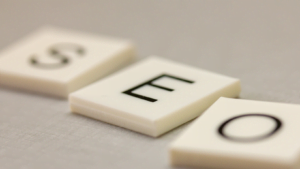SERPWizz Interviews – Hannah Thorpe

Hannah Thorpe
Verrker.co
Hannah is Managing Director at UK based digital marketing agency Verkeer, Hannah has over eight years of search experience having devised and managed a range of successful online campaigns for such large brands as LTA, Le Creuset, And So To Bed, M&G and Elsevier. Specialising in combining technical SEO tactics with clever content marketing delivery, Hannah is responsible for leading complex technical strategies through to creating innovative content campaigns that are underpinned by detailed search and audience data to drive positive ROI for her clients.
Check out Hannah’s: Website, LinkedIn, Twitter, Email
What are some of the biggest challenges/obstacles you faced when starting
out with SEO, and why?
I think SEO can be really overwhelming to start with; it feels like people are speaking another language and it’s daunting to find yourself in conversations like that where you’re barely keeping up with people describing the problem – nevermind knowing the
solutions. Time and time again this is one of the biggest obstacles I now see with juniors too; feeling a bit lost on where to start and being too afraid to ask the experts to slow down and explain it.
Tell us about your favourite/most successful link-building strategy – how
quickly do you typically see results from this method?
The link building I enjoy doing is when you’re using data to tell a story – it’s so much more cost effective to nail down a unique take on data; mixing some freely available datasets together or even researching your unique data. From that you can provide other sites and journalists with the raw data to be able to build their own stories from it and reference your brand as the source of the research – that is much more effective at really capturing the maximum coverage from just a small amount of work.
When you feel overwhelmed or unfocused, or have lost your focus temporarily, what do you do?
I’m a big believer in listening to what your body and mind need – if you feel like you just need to sit on the sofa and watch netflix, then sit on the sofa and watch netflix. I often get called a workaholic because it seems like I’m working all hours of the day, but realistically I’m working to the rhythm that’s best for me which means doing nothing in the mornings and working all evening. I think when you’re doing that it’s so much easier to stay focused and on top of things. I also love a to do list – I segment mine by time and into thinking/doing tasks so that I can switch up between different combinations of task types to stay interested.
What are bad recommendations you hear in your profession or area of expertise?
I guess there are two types of bad recommendations; bad SEO and bad business. For bad SEO recommendations, I think the worst are when people are fixated on single metrics or moments in time. For example a particular number of links or a single keyword ranking. That stuff doesn’t work for getting a bigger picture of how performance is going and can mean that you miss a bigger piece of the puzzle when planning your SEO approach.
For bad business recommendations, I think that SEO is an industry where many of the agency owners are specialists who’ve become leaders, rather than leaders who became specialists. This differentiation is really important when you’re thinking about who’s advice to follow – it’s possible that you can be great at both things but fairly unlikely. So some of the worst advice I’ve seen has been recommendations to do things like offer clients huge flexibility in payment terms or guaranteed results, or to choose to hire big teams of juniors just to deliver standalone projects – this sort of thing just destabilises your business and puts your livelihood (and the livelihoods of your team) at risk.
In the last five years, what new belief, behavior, or habit has most improved
your life?
I talk alot with my team about remembering that sometimes to get better you have to break things. Looking at the work you’re doing on a daily basis and repeated tasks and thinking how could I change this? What if I broke the process entirely and started
again? How would it change? Whilst it’s a very work focused example, I think it also applies to daily life to be able to think outside of the box and question why you’re doing things a certain way and what would happen if you changed that. By breaking things, you have the opportunity to make drastic step-change improvements.
What is one of the best or most worthwhile investments you’ve ever made?
Both time and energy went into me changing roles to become MD at Verkeer; I made the decision during lockdown and started my role just as offices were beginning to open up. I made the commitment to move to a temporary flat (read: tiny room) that was walking distance from the office and be in with the team everyday. Whilst it wasn’t the most idyllic of living situations, the value of getting that month in of face to face time with the team and working to build something together, made the subsequent few months when we returned to working from home much better.
Tell us one thing about SEO that most people don’t know?
I’m not sure what most people don’t know! But I think for me the biggest mindset change in my approach to SEO has been to consider it as properly understanding Google’s information retrieval methods. In my eyes there are two clear types; when Google looks down into the index and processes the relationships between sites and content to return the best webpage for users and when Google looks up into it’s bookmarked knoweldge graph to return a fact or summary for users.
That’s a very simplified summary of my approach to SEO but I think it shows the case for adapting multiple types of SEO strategy; a tactical, traditional approach for traffic and rankings, and also looking broader at your brand entity apporoach and how you own elements like answer boxes and rich results.
How has a failure, or apparent failure, set you up for later success? Do you
have a “favourite failure” of yours?
I’m a big believer in embracing your failures, so I encourage people to talk about them alot. Being able to own the fact you made a mistake and learned from it is a far greater skill than being able to get it right everytime (until you don’t). I think for me my biggest failures were when I was younger and starting out in account management; I’m pretty opinionated and would put across my point of view too forcefully which would make the client less likely to open up, tell me they didn’t understand etc. I’d really accelerated my learning to know that I knew the best answers, but I didn’t know the importance of taking the client on the journey with me, explaining my workings and getting them on board.
What is the book (or books) you’ve given most as a gift, and why? Or what are one to three books that have greatly influenced your life?
Blue Ocean Strategy : This was given to me by another agency who loved the theory and honestly it’s something I use themes of everyday in my work. It encourages you to look to the broader market and I now build SEO strategies using the blue and red ocean concepts. The Human Brand: Summarises why people love brands and more importantly how to get people to love your brand; I use this both for how we position Verkeer in the market and for how we encourage our clients to. It’s all about showing consumers your warmth (how approachable, human, caring you are) combined with your competency (how good you are at the skill you’re selling) in order to get maximum retention. Buy-ology : Talks about the psychology behind people’s buying decisions and how famous brands have influenced consumers and gained their dominance.
What profession other than your own would you like to attempt?
I always wanted to be a lawyer; but not like a real life one, I wanted to be one from those american TV sitcoms shouting ‘objections’ and storming into court with brand new evidence to save the day.
Tell us about someone you admire and why you admire them?
I will be mocked for this in the office a lot but I really admire my boss, the CEO of Verkeer, Nick Wassink. I think the trait I admire most is his decisiveness and lack of fear to fail, he knows that not 100% of every decision will be the right one but that sometimes it’s better to make a choice and commit to it than to freeze. That’s backed up by the fact the decisions he makes always consider both the people he employs and the health of the business as a whole.
What is a useful skill someone could learn in one minute?
A tip for communication that a mentor of mine used to call ‘drama triangles’. If you know that anytime you communicate with someone else you’re either in child, adult or parent mode and so are they – it can frame every conversation differently. Adult to
adult communication is super productive and you’ll feel that you will always make positive progress. But think of it like a seesaw, if you slip into parent mode and start telling the other person what to do or rescuing them from a problem then they’ll slip into child mode – and they’ll either have a tantrum or go very quiet on you – and vice versa! I think the skill is knowing this in every interaction you have to be able to understand why you’re reacting a certain way, or why the person you’re talking to is, and to be able to bring both of you back into adult mode.
What’s your favourite holiday destination?
Literally anywhere. I love to travel and this past year has been tough!
What did you have for breakfast this morning?
Nothing! I’m not one of those get up at 4am, go for a run, cook a 5 star healthy breakfast and smash out a to do list by 10am kinds of people. In the morning all I want is black coffee and silence.
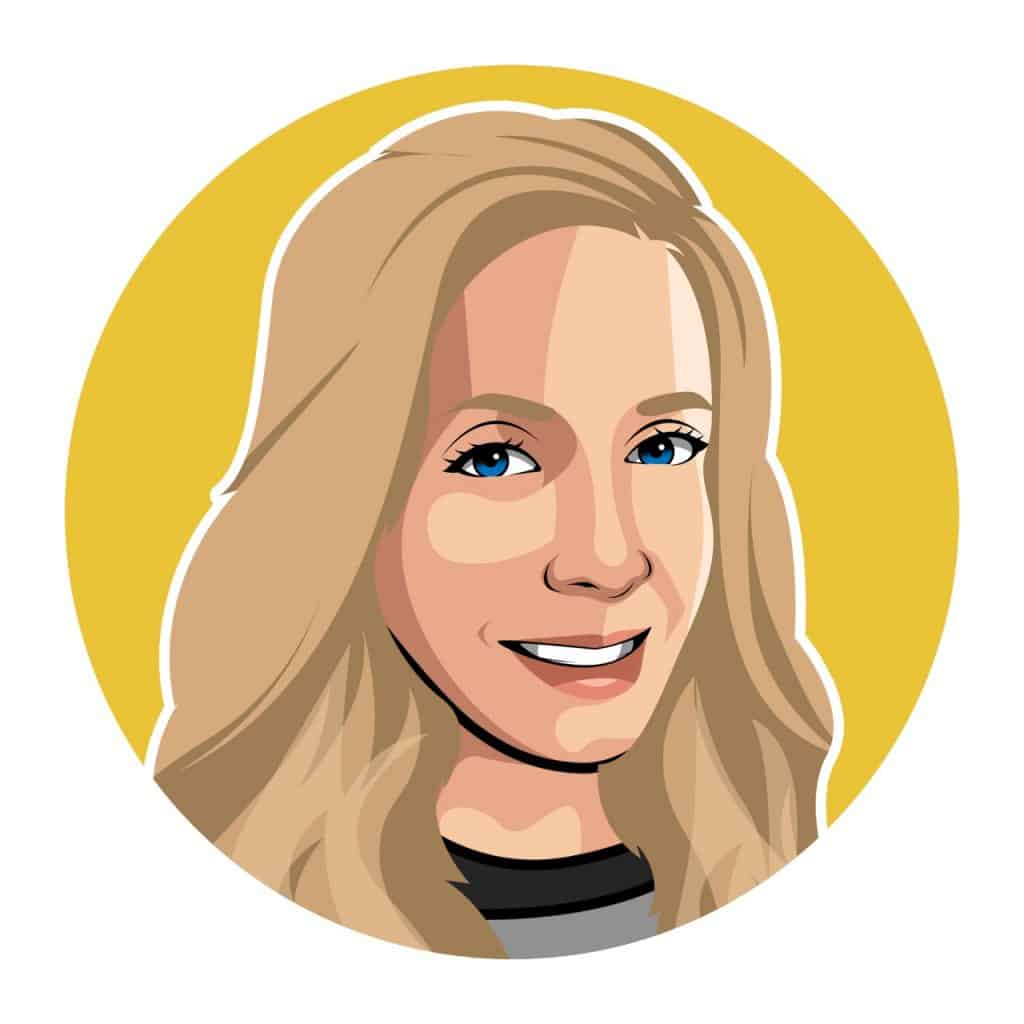

Heather Wilkinson
Author
Heather Wilkinson is a globe-trotting content creator and PR enthusiast who’s finally put down roots in her native UK. When she isn’t working, you’ll find her pretending to care about Minecraft for her son’s sake, while secretly reading the latest Ace Atkins novel (or sleeping – her second favourite past-time).

